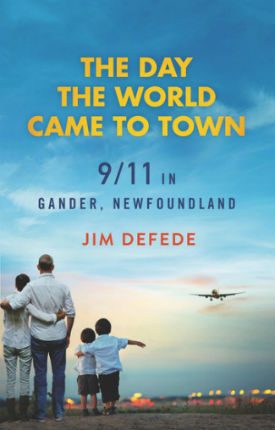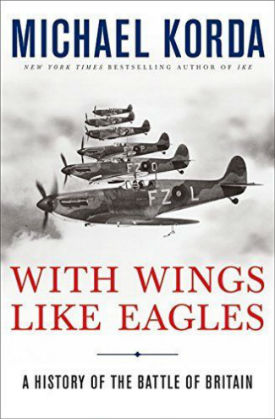Gander in the Air
By Neil Earle

Well bless my sou’wester it’s September again and the American newscasts are (understandably) leading with the horrors of the supreme tragedy that struck us all on September 11, 2001.
I should have been more aware. Last week after book club at Cordova Library down here in Memphis, Tennessee my librarian and I were talking about my proposed lecture on the 100th anniversary of the end of World War I this November and how it affected the United States. I lecture at libraries occasionally as a public service.
She thought it might work that month so – almost as an afterthought – I mentioned “Let’s do it in late November, I’ll be in Canada on November 11th.”
“Canada, what part?”
“Toronto, but I’m from Newfoundland.”
“What? No. Unbelievable! I’ve been praying for years that the cast of ‘Come from Away’ makes it through Memphis. It’s my favorite musical.”
“I know,” I replied, “I did a small cable news show back in Los Angeles about the book ‘The Day the World Came to Town’ that talks about those events in and around Gander.”
She seemed content.
Happy Birthday RAF!
I might have thrown in that 1918 is also the 100th of the founding of the Royal Air Force – the world’s oldest independent air service, or mention that my home-town of Carbonear had a creditable display shown this summer on the fact that there was actually a Newfoundland Air Force squadron active in World War II. But that would have been stretching things I thought.
“Beacon” readers probably know this more than most but – yes – there was a regular 125 Newfoundland Squadron attached to the RAF and seven Newfoundlanders reached captain rank during that momentous conflict. There were hundreds of other Newfoundlanders scattered across the Dominion with the Commonwealth Air Training Program, many with the RCAF.
A 125 squadron pilot from Carbonear, John Bertrand Cornish, flew Ferry Transport in “the war” and ended up as an air traffic controller at – where else – Gander!
Of course the RAF looms a bit larger today because the Western world seems to be reawakening to what historian Max Hastings acknowledges as our parents and grandparents heroic efforts in that epic conflict. The year 2017 saw two movies that captivated Americans – “Dunkirk,” about the dramatic rescue of British forces from death and shame and “The Darkest Hour” about Winston Churchill’s defiance of the Nazi threat in 1940. When I asked a war veteran chronicler back home how he figured we won World War II he answered quickly, “2000 RAF fliers in the summer of 1940.”

“Captains of the Clouds”
Even before the aerial Battle of Britain RAF pilots (not all of them English) shot down German planes over Dunkirk at the rate of 3 to 1. Now most “Beacon” readers of a certain age know how the British government then running Newfoundland and other private interests stirred by the trans-Atlantic possibilities – commercial and military – began construction in 1936 of the simply-designated Newfoundland Airport at…you guessed it…Gander. After that came the Canadians, the Americans and a cast of multiple thousands and thousands of bombers and fighters which Gander personnel helped ferry across to beleaguered Britain as part of the Royal Air Force Ferry Transport Command.
Hollywood even ground out a 1942 patriotic movie “Captains of the Clouds” saluting the RCAF featuring James Cagney as a renegade bush pilot pleading to join the ferry service out of…Gander.
My own Gander story which I relayed on local television back in Los Angeles was flying home from College in England and having to be diverted in January, 1971 from Torbay to…Gander. Makes sense. My knowledgeable patriotic father used to proudly hail Gander in the 1950s as “the crossroads of the world” when CFAs would visit his store.
On September 11, 2001 for 7000 stranded passengers it was once again a crossroads of vital significance to their lives. So maybe Shakespeare’s Hamlet had it wrong, maybe it’s the good that people do which lives on after them! At least the librarian in Cordova, Tennessee thinks so! Well done, one and all.
(Neil Earle is a Contemporary Author and writer of numerous articles and essays on Canada and Newfoundland.)